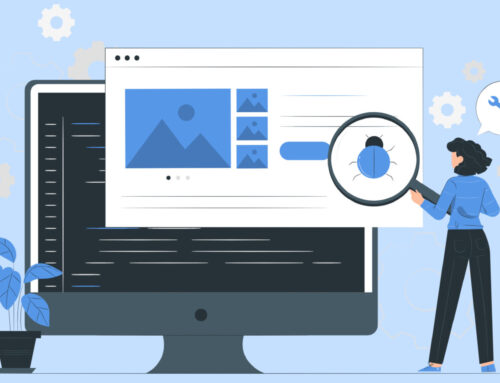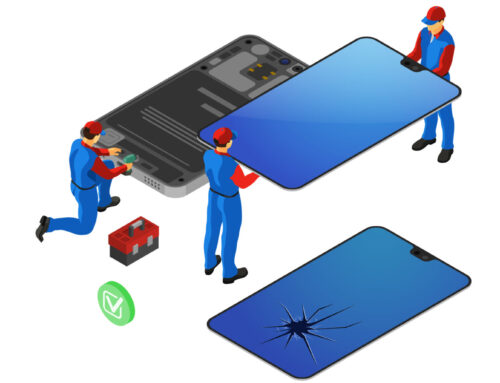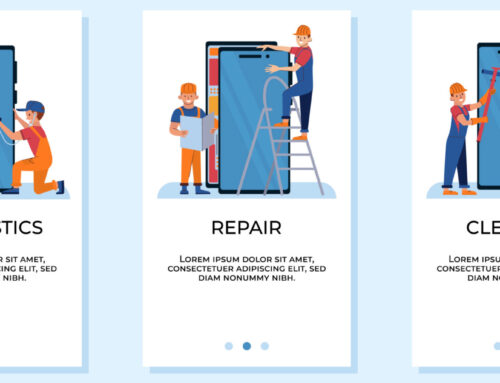How to Choose the Best CRM Software for Your Small Business
Introduction
Running a small business comes with its own set of challenges. From managing customer relationships to keeping track of sales and marketing activities, it can be overwhelming to handle everything manually. That’s where Customer Relationship Management (CRM) software comes to the rescue. An online CRM solution offers numerous benefits, such as improved efficiency, streamlined operations, and enhanced customer satisfaction. However, choosing the right CRM software for your small business can be a daunting task. In this blog post, we will discuss the challenges you may face and provide insights to help you make an informed decision. Customer relationship management (CRM) software is a critical tool for small businesses of all sizes. It can help you track leads, manage customer interactions, and close more deals. But with so many CRM solutions on the market, it can be tough to choose the right one for your business.
Here are some of the challenges you’ll face when choosing online CRM software for your small business:
- Identifying Business Needs: Before you start exploring CRM options, it’s crucial to understand your business needs. Every small business is unique, with its specific requirements and processes. Consider the size of your business, your target audience, and the scope of your operations. Determine the key functionalities you expect from a CRM system, such as contact management, sales pipeline tracking, customer support, or marketing automation. Having a clear understanding of your needs will help you narrow down the options and select a CRM software that aligns with your goals.
- Scalability and Customization: Small businesses often have limited resources, and their requirements may change as they grow. It’s essential to choose CRM software that can scale your business and adapt to evolving needs. Look for a solution that offers customization options, allowing you to tailor the CRM to suit your specific workflows and processes. Flexibility is crucial, as it ensures the CRM software can grow alongside your business and accommodate future expansion without requiring a complete overhaul.
- User-Friendliness and Training: When implementing a new CRM software, user adoption plays a vital role in its success. The software should be intuitive and easy to use, requiring minimal training for your team members. Consider their level of technical expertise and choose a CRM solution that simplifies their tasks rather than complicating them further. Look for a user-friendly interface, clear navigation, and accessible customer support resources. CRM software that is user-friendly will save time and frustration, enabling your team to focus on their core responsibilities.
- Integration Capabilities: Your small business may already be using several software applications to manage various aspects of your operations. It’s essential to ensure that the CRM software you choose can integrate seamlessly with your existing tools. Integration allows data to flow smoothly between different systems, eliminating the need for manual data entry and reducing the chances of errors. Whether it’s your email client, marketing automation tool, or accounting software, make sure the CRM solution offers robust integration capabilities to maximize efficiency and avoid duplicating efforts.
- Budget and Total Cost of Ownership: Cost is a significant consideration for any small business. While it’s tempting to opt for free or low-cost CRM software, it’s crucial to evaluate the total cost of ownership over the long term. Consider not only the upfront costs but also the ongoing subscription fees, customization expenses, and training costs. Additionally, think about the potential return on investment (ROI) the CRM software can provide in terms of increased productivity, improved customer relationships, and revenue growth. Strike a balance between affordability and the value the CRM solution can deliver to your business.
- Security and Data Protection: Protecting customer data should be a top priority for any business, regardless of its size. When choosing an online CRM software, pay close attention to security measures and data protection protocols. Look for features such as secure data encryption, role-based access controls, and regular backups. Ensure that the CRM provider adheres to industry standards and regulations, such as GDPR or HIPAA, if applicable to your business. A robust security framework will give you peace of mind, knowing that your customers’ sensitive information is safe and secure.
- Features: Not all CRM software is created equal. Some solutions offer a wide range of features, while others are more basic. It’s important to choose a solution that has the features you need to manage your customer relationships effectively.
- Ease of use: CRM software can be complex, so it’s important to choose a solution that is easy to use for your team. Look for a solution with a user-friendly interface and clear documentation.
- Integrations: Many CRM solutions integrate with other business software, such as accounting software, marketing automation software, and project management software. This can help you streamline your business processes and save time.
- Support: If you have any problems with your CRM software, you’ll need to be able to get help from the vendor. Make sure the vendor offers good support, such as 24/7 phone support or online chat support.
Here are some tips for choosing the right online CRM software for your small business
- Start by defining your needs: What do you need your CRM software to do? What features are essential for your business?
- Do your research: Compare different CRM solutions and read reviews from other users.
- Consider your budget: How much are you willing to spend on CRM software?
- Choose a solution that is easy to use: Your CRM software should be easy to use for your team.
- Look for a solution with integrations: Integrations can help you streamline your business processes.
- Make sure the vendor offers good support: If you have any problems with your CRM software, you’ll need to be able to get help from the vendor.
Choosing the right online CRM software for your small business can be a challenge, but it’s worth it. The right CRM software can help you improve your customer relationships, close more deals, and grow your business.
Here are some of the best online CRM software for small businesses:
- Zoho CRM: Zoho CRM is a popular and affordable CRM solution that offers a wide range of features. – www.zoho.com
- Freshsales: Freshsales is a feature-rich CRM solution that offers a wide range of integrations. – www.pcmag.com
- BytePhase: BytePhase CRM is Multiple feature and cost-effective from small to large business – bytePhase.com
No matter which CRM software you choose, make sure it is the right fit for your business needs. With the right CRM software, you can improve your customer relationships and grow your business.
Conclusion
Selecting the right CRM software for your small business can be a complex task. By understanding your specific needs, considering scalability, prioritizing user-friendliness, evaluating integration capabilities, analyzing the total cost of ownership, and focusing on security, you can navigate through the challenges and make an informed decision. Remember, the right CRM solution will empower your small business, improve customer relationships, and streamline your operations, ultimately leading to long-term success.
Concluding Thoughts
When it comes to choosing the right CRM solution for your small business, the choices can be unlimited and complicated. The proven way to find such a tool is to first take some time to think about what is most important to you in CRM software. Once the goals and a set of priority features are identified, you’ll be able to determine which solution offers the best fit for your business. This decision will most likely come down to their user-friendliness, support, onboarding services, price points, features, and customization options. But the final decision has to be made only based on your experience during the testing period.
BytePhase is an excellent cloud-based CRM software specifically designed for small businesses. It offers an extensive range of features, including job management, Sale management, lead management, contact management, reporting and many more. BytePhase is known for its ease of use and affordability.
If you’re seeking a CRM solution that can facilitate the growth of your small business, BytePhase is an outstanding option. Take advantage of a trial pack today and witness firsthand how BytePhase can assist you in achieving your goals.












